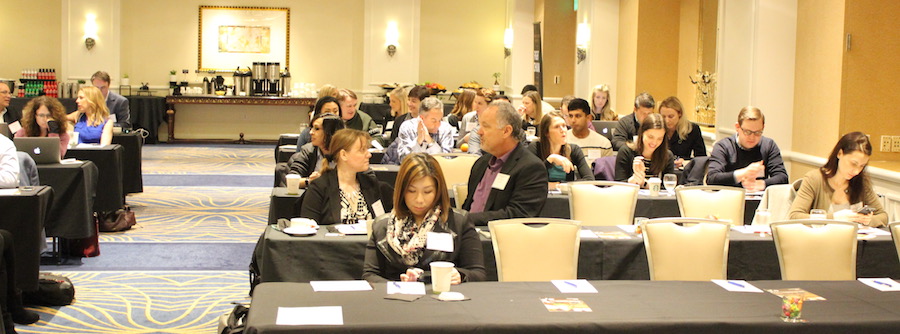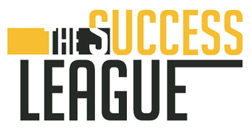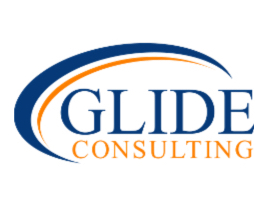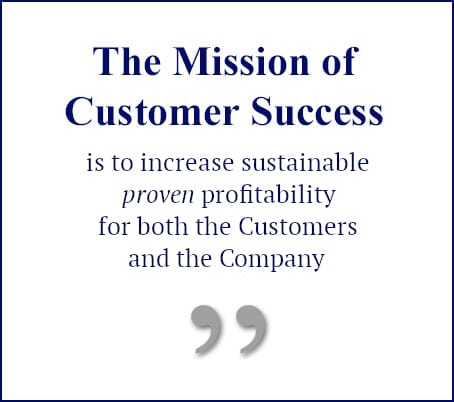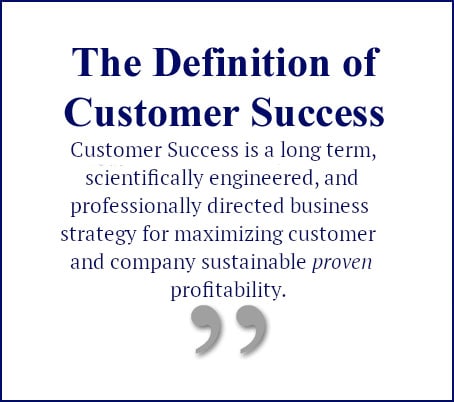January 13th 2020
!! Unfortunately, this event has been cancelled. !!
 The Mission of Customer Success is to increase sustainable proven value for both the Customers and the Company. While the majority of Customer Success groups have become directly involved with managing income streams and profitability over the past 5 years, there has been little real discussion to date about the issues of actually proving the sustainable value of Customer Success to either the Customers or to the Company. It’s time for that conversation to start.
The Mission of Customer Success is to increase sustainable proven value for both the Customers and the Company. While the majority of Customer Success groups have become directly involved with managing income streams and profitability over the past 5 years, there has been little real discussion to date about the issues of actually proving the sustainable value of Customer Success to either the Customers or to the Company. It’s time for that conversation to start.
The 2019 Customer Success Standards Initiative Research survey asks: How many additional income channels does your company have beyond your primary product? The next question is about an increasingly vital issue: Which of the following income/revenue channels are either completely owned/managed by the Customer Success team, or the credit is shared between the CS team and other departments?
Questions
 What does it mean for a Customer Success group to become a profit center? What are the phases of the journey, and how should the change be managed?
What does it mean for a Customer Success group to become a profit center? What are the phases of the journey, and how should the change be managed?
Proving your value to the company in financial terms is vital, but that’s only half of the challenge. How will you work with the customers to show the sustainable proven value that they are receiving from their relationship with your company?
Making sure your executive team understands the positive impact your CS team has on sustainable profitability is critical. What are the specific tactics and actions you can take to get the executive team to commit the time, budget, resources and internal alignment you need?
Customer Success professionals seem to have a curious reluctance to talk directly about money with their customers?. What can you do to overcome this to focus directly on proven sustainable value?
The Profitability Blueprint is the result of over 9 years of research conducted by The Customer Success Association and the expertise of people who have “been there and done that.” Join us in Berkeley on November 18th to explore what the answers might look like in your company.
Sessions: 1 pm – 5 pm
The Profitability Blueprint:
Customer Success: The History of a Profession
In 1996, as the VP of Customer Services and Consulting for Vantive, (an on-premises, traditional model CRM software company) Marie Alexander had the arduous task of convincing her CEO that the most effective and efficient path to increasing customer revenue would be found by taking ownership of their customer’s success. She had the audacity to suggest that this was the company’s responsibility not the customer’s and that it was not a function of sales, but rather the services organization.
She was eventually able to convince the CEO that the key to accelerated revenue growth for the company lay in the services organization, and, if given the chance, she could turn his sales team into order takers.
In this session, Marie will share her recollection of the early days of the very first named Customer Success team and what her real intent was for return on the program.
Marie Alexander
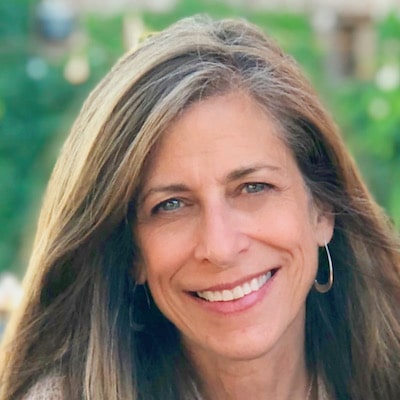 Starting her career with 10 years at an amusement park sparked Marie’s initial addiction to workplace adrenaline. Since those early days, she has been a key part of a number of companies, including two successful IPOs and two successful acquisitions. Each company achieved a strong profitable model before exit.
Starting her career with 10 years at an amusement park sparked Marie’s initial addiction to workplace adrenaline. Since those early days, she has been a key part of a number of companies, including two successful IPOs and two successful acquisitions. Each company achieved a strong profitable model before exit.
Marie has the distinction of having created the very first named Customer Success group at a traditional model on-premised CRM software company in 1996 — years before the role started spreading around the corporate landscape worldwide. She is currently looking at a return to CS executive leadership.
Best Practices: Talking About Money – Using Metrics to Demonstrate Tangible Value to Your Customers
Sales and Customer Success professionals alike often find it difficult to open talk about financial value with their customers. While it can sometimes be a challenge to put a monetary number on features and functions, it’s a conversation worth having. IN this session, Kristen Hayer will discuss:
-
-
- Why you shouldn’t be afraid to directly talk about money
- How to turn a customer expectation into a measurable monetary goal
- How to get customers to share the metrics they care about and connect them to money
- How to present goals and results to demonstrate a return on investment
- Positive ways to handle negative results
-
Kristen Hayer
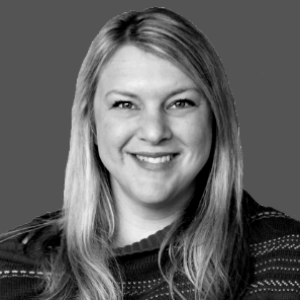 Kristen Hayer is the founder and CEO of The Success League, a customer success consulting firm that works with CS leaders to build and develop high-performing teams. Kristen believes that customer success is the key to driving revenue, client retention and exceptional customer experiences. Her areas of expertise include developing success goals and metrics, designing the optimal customer journey, selecting technology, training teams, and building playbooks.
Kristen Hayer is the founder and CEO of The Success League, a customer success consulting firm that works with CS leaders to build and develop high-performing teams. Kristen believes that customer success is the key to driving revenue, client retention and exceptional customer experiences. Her areas of expertise include developing success goals and metrics, designing the optimal customer journey, selecting technology, training teams, and building playbooks.
Prior to founding The Success League, Kristen built and led several award-winning customer success teams. Over the past 20 years she has been a success, sales, and marketing executive, primarily working with growth-stage tech companies. Kristen has her BA from Seattle Pacific University and her MBA from the University of Washington.
Best Practices: The Crisis in Confidence in Customer Success
Many CS leaders are struggling to establish themselves and their organizations inside of skeptical companies that are not completely bought in to the criticality of CS. In this session, Michael Harnum will outline a five pillar approach to gaining confidence and elevating CS.
1. Mindset – it all starts here.
Do you have a fixed or growth mindset? What is the difference and why does that matter? Can you manage and shift your mindset? This thinking is based upon my reading and applying the work of Stanford professor Carol Dweck in her book aptly entitled “Mindset”
2. Know your strengths and bet big on those strengths.
How do you identify your strengths? Shouldn’t I be concerned about my weaknesses? How does this impact my hiring strategy?
3. Know your value and define your value even if it’s small.
Pick something, anything inside your company that CS can measurably impact. Go at it full tilt. Use that experience to find the next mountain to climb. Repeat. Expand.
4. Growth in confidence is iterative.
What does this growth look like for you and how can you leverage others to make sure growth is happening? You won’t get to the top of the mountain in a day – this is a marathon and we each need to take stock of and appreciate the small, iterative growth steps along the way.
5. As a CS pro, your biggest advantage and biggest opportunity is to accelerate your LEARNING.
How do you do this today? How can you do it better tomorrow? Why does this matter?
Michael Harnum
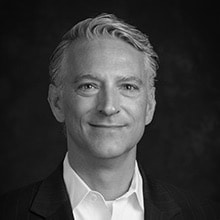 Michael Harnum is Chief Executive Officer of ESG. With more than 27 years of experience in the Technology and Services industry, Michael has proven to be an influential leader maximizing employee productivity, improving customer satisfaction and helping businesses grow. He is passionate about providing world class customer care and is driven to help organizations succeed.
Michael Harnum is Chief Executive Officer of ESG. With more than 27 years of experience in the Technology and Services industry, Michael has proven to be an influential leader maximizing employee productivity, improving customer satisfaction and helping businesses grow. He is passionate about providing world class customer care and is driven to help organizations succeed.
ESG delivers Customer Success as a Service, helping companies efficiently extend their customer coverage model with a pay-for-performance approach powered by people. ESG’s process-driven formula combines technology expertise with the power of human interaction to help clients catalyze untapped revenue and build value at every point throughout the customer life cycle.
..
Best Practices: Benchmarking to Build High Performance Customer Success Teams
Every organization is at a different maturity state with its Customer Success program and an approach that may work for one company may not work for another. That’s why standards and awareness around benchmarking has been almost absent in the industry. However, scaling customer success, health monitoring, monetization, staffing, onboarding, and adoption cannot be planned if the metrics are not understood and benchmarked with the best-in-class. This session will cover customer success metrics and the key benchmarks to use to measure performance when building your customer success team.
Shreesha Ramdas
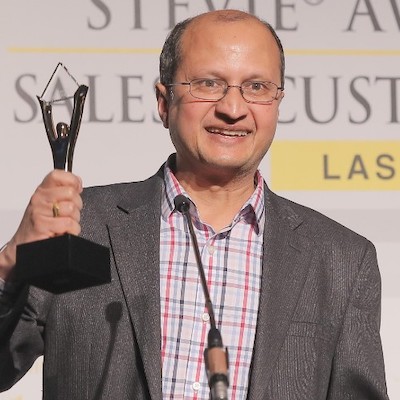 Shreesha Ramdas is SVP and GM at Medallia. Previously he was CEO and Co-founder of Strikedeck. Prior to Strikedeck, Shreesha was GM of the Marketing Cloud at CallidusCloud, Co-founder at LeadFormix (acquired by CallidusCloud) & OuterJoin, and GM at Yodlee. Shreesha has led teams in sales and marketing at Catalytic Software, MW2 Consulting, and Tata. Shreesha also advises startups on marketing and growth hacking.
Shreesha Ramdas is SVP and GM at Medallia. Previously he was CEO and Co-founder of Strikedeck. Prior to Strikedeck, Shreesha was GM of the Marketing Cloud at CallidusCloud, Co-founder at LeadFormix (acquired by CallidusCloud) & OuterJoin, and GM at Yodlee. Shreesha has led teams in sales and marketing at Catalytic Software, MW2 Consulting, and Tata. Shreesha also advises startups on marketing and growth hacking.
Best Practices: Setting Up Your Customer Success Team for Profitability
To maintain and scale profitable customer relationships, it requires a dedicated Customer Success team equipped with the necessary customer training tools and process to measure and communicate VOI and ROI. In this session you’ll learn how ‘value selling’ and a customized success plan can be used early in the process to develop a strong relationship with the customer throughout their journey.
Barry Kelly
 Barry Kelly is CEO and Co-founder of Thought Industries. He is a marketer and digital learning innovator with a proven track record in elearning web and mobile product development, customer success, and creative digital strategy. His career has been focused on helping organizations leverage the power of online learning to grow their businesses. He has over 20-years of experience in learning technology and SaaS product development.
Barry Kelly is CEO and Co-founder of Thought Industries. He is a marketer and digital learning innovator with a proven track record in elearning web and mobile product development, customer success, and creative digital strategy. His career has been focused on helping organizations leverage the power of online learning to grow their businesses. He has over 20-years of experience in learning technology and SaaS product development.
Reception: 5:00 – 7:00 pm
.
Customer SuccessCon Seattle 2020
!! Event Cancelled !!
